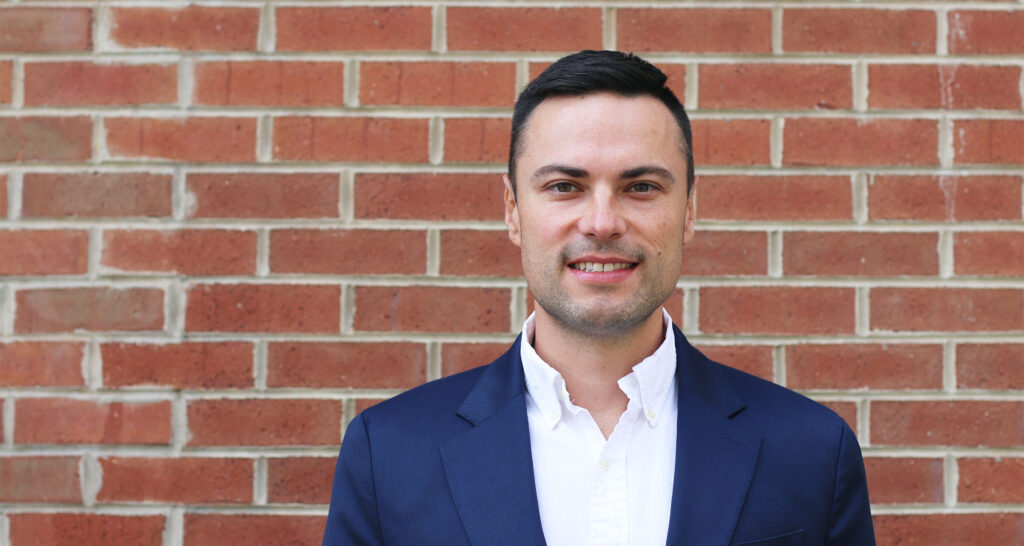Assistant Professor Ivanov will Expand NE’s Molecular Design Capacity
This August, Alex Ivanov will join the University of Tennessee’s Department of Nuclear Engineering (NE) as a tenure-track assistant professor.
Though this will be Ivanov’s first teaching position, he already has plenty of experience helping young minds understand nuclear science. Just last year, he helped a team of high school students from Texas with their project on the history of radium discovery and use.
“They saw that I have relevant journal publications and decided to contact me,” said Ivanov, who is currently a research and development scientist in physical chemistry at Oak Ridge National Laboratory (ORNL). “My main objective is to contribute to teaching the next generation of nuclear engineers, so I was happy to get involved.”
Ivanov has also worked around Knoxville to communicate the importance of nuclear energy. He received the ORNL award for exceptional contributions in science communication in 2024.
Now Ivanov looks forward to helping UT students explore the many facets of nuclear engineering, from theory to experimentation.
“I prefer to work in environments where young minds can come and solve problems,” said Ivanov. “That is important to me because I’m not only translating my knowledge to students, but they are sort of teaching me as well. I like seeing how students, with their fresh minds, come up with new ideas that contribute to the future of our society.”
Molecular Design in Silico
After completing his bachelor’s and master’s degrees in chemistry at RUDN University in Moscow, Russia, Ivanov earned his doctorate at Utah State University in the Department of Chemistry and Biochemistry.
His doctoral research focused on quantum chemical modeling, especially atomistic simulations, which are used to predict the atomic-scale phenomena that underlie materials’ physical properties.
“My PhD kind of bridged material science and quantum mechanics,” he said. “I started with a fundamental approach, simulating the behavior of atoms in molecules, and then my interest grew to include different experimental techniques in material science and engineering for radionuclides (radioactive elements).”
Ivanov conducted a postdoctoral fellowship at ORNL, where he was hired as a staff scientist in 2018. He uses computational methods to simulate molecules with useful properties that synthetic chemists can create to solve various problems in nuclear engineering, from energy production to medicine.
“The configurational space of molecules you could use to selectively bind a given radionuclide is very diverse,” explained Ivanov. “Currently, synthetic chemists in the field use a mostly Edisonian (trial-and-error) approach, where you create different molecules and try them on different radioisotopes. In my approach, I use computational techniques to narrow this configurational space.”
At ORNL, Ivanov helped develop a machine learning algorithm that guides synthetic chemists toward the most effective molecules for binding specific radionuclides, accelerating the design of new radiotherapies. “Performing the first steps in silico (with simulations) is much more efficient, and my collaborations with synthetic chemists have shown that this approach works really well,” he said.
Establishing a Balanced Lab
Ivanov’s research interests balance experimental work and theory, nuclear medicine and energy production.
He has also been serving as a principal investigator on the Molten Salt in Extreme Environments (MSEE) center, one of the United States Department of Energy (DOE) Energy Frontier Research Centers, which is devoted to understanding how the atomic-scale properties of molten salts translate to the design of Generation IV nuclear reactors.
Ivanov envisions his lab at UT as a space where students can explore the breadth of the nuclear engineering field, just as he has.
“I envision my group allowing students to tailor their degrees to their interests, whether that means focusing on atomistic simulations and theoretical work, or on practical areas such as nuclear fuel design and reprocessing,” he said. “The important thing is to provide students with a dynamic learning environment that prepares them to make significant contributions to our society, in either academic or industrial settings.”
Contact
Izzie Gall (865-974-7203, egall4@utk.edu)
